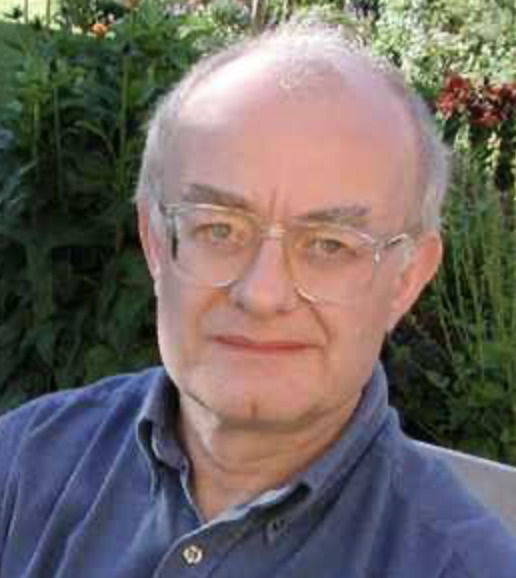|
Symphony
FROM THE NEW WORLD TO THE OLD WORLD
by Peter Lert
Saturday, June 14, 2025
Chamber
MC2 DUO RECITAL CLOSES 222'S SEASON
by Terry McNeill
Saturday, June 14, 2025
Choral and Vocal
CANTIAMO SONOMA'S LUSCIOUS A CAPELLA SINGING IN SEASON ENDING CONCERT
by Pamela Hicks Gailey
Sunday, June 8, 2025
Symphony
SRS SEASON ENDS WITH RESOUNDING TA-TA-TA-BANG
by Terry McNeill
Sunday, June 1, 2025
Symphony
YOUTHFUL VIRTUOSITY ON DISPLAY AT USO'S MAY CONCERTS
by Peter Lert
Saturday, May 17, 2025
Symphony
MYSTICAL PLANETS AND LIVELY GERSHWIN ORTIZ AT FINAL SRS CONCERT
by Peter Lert
Sunday, May 4, 2025
Symphony
VSO'S CONCERT MUSIC OF TIME, MUSIC OF PLACE
by Peter Lert
Sunday, April 27, 2025
VOCAL ELEGANCE AND FIRE AT THE 222'S RECITAL APRIL 26
by Pamela Hicks Gailey
Saturday, April 26, 2025
CANTIAMO SONOMA SINGS AN INSPIRED GOOD FRIDAY MOZART REQUIEM CONCERT
by Pamela Hicks Gailey
Friday, April 18, 2025
DRAMATIC SHOSTAKOVICH SYMPHONY CLOSES PHILHARMONIC'S 25TH SEASON
by Terry McNeill
Sunday, April 13, 2025
|
 |
 Composer John Rutter |
SPLENDID GOOD FRIDAY RUTTER REQUIEM AT CHURCH OF THE ROSES
by Pamela Hicks Gailey
Friday, April 7, 2023
The choral music of British composer John Rutter holds a special place in the hearts and voices of choral groups worldwide. Like his American counterparts Eric Whitacre and Morten Lauridsen (to name just two of a very large field of the most popular living choral composers) Rutter has spent a lifetime devoted to composing choral works, specifically involving Anglican liturgical music. Famous and beloved for his accessible, emotional melodies and harmonizations, and a welcoming, soothing compositional style, his music is ever-present in high school, college, church and community chorus programs.
And with good reason. One definitely hears the influence of Vaughan-Williams, Duruflé, Fauré and maybe even Brahms in Rutter’s work. Tunefully placid and serene in a way that calms and restores, and dramatic without ever overly challenging the listener with atonality, or demanding an educated, sophisticated ear to appreciate, and yet demanding and interesting enough to hold musical interest. His collection of carols, hymns and anthems alone would guarantee his place in music history. Three of his best-known larger works (Gloria, Requiem, and Magnificat) are performed regularly worldwide, where he is even more popular than in his homeland.
Rutter’s compassionate Requiem was an ideal choice for the combined vocal forces of Cantiamo Sonoma and the Presbyterian Chancel Choir in their Good Friday concert at The Church of the Roses, conducted by Carol Menke, for a full church audience. It is an appealing work which dates from 1985, and its seven movements run just under forty-five minutes. Much like Fauré’s Requiem performed so beautifully by Cantiamo last year, it is is a setting of portions of the Latin requiem mass. Rutter added psalms and biblical verses in English for two movements - a nice touch. It is scored for mixed choir and orchestra or chamber ensemble.
The excerpted portions of the Latin requiem mass used here are the Introit and Kyrie, Pie Jesu, Sanctus, Agnus Dei and finally Lux Aeterna. The second and sixth movements are in English, and are settings of biblical texts (Psalm 130 - "Out of the Deep," and Psalm 23 - “The Lord is My Shepherd”), the latter being a previously composed anthem which Rutter incorporated into the Requiem.
The chamber ensemble version of the score featured mostly Santa Rosa Symphony musicians Kathleen and Laura Reynolds, Allen Biggs, Wendy Tamis, Ben Snellings, John Weeks, and organist Robert Young combined their compact forces into a satisfying and surprisingly full sound and balanced well with the 32-voice choir. Especially enjoyable was the full and bright Sanctus that featured the joyous addition of glockenspiel, and highly descriptive orchestral color abounded throughout. Timpani and organ provided foreboding tension with their ostinatos and pedal point. The cello line was the probing, questioning voice, and the oboe and flute solos brought a hopeful quality. The harp part was used generously both as dramatic solo and background and filled in the way strings would.
As in Fauré’s setting, the Pie Jesu is written for soprano solo. Emily Sylvestre’s sweet, treble-like voice and outstanding intonation made for a genuine, vulnerable, and lovely moment, a couple of breath emergencies notwithstanding.
As always Ms. Menke presided with calm intensity and strict tempi, drawing from the entire group consummate attention to phrasing, intonation, balance and text. The vocal diction was unusually clear for a chorus and is always a pleasure to hear. Ms. Menke’s skill in sustaining deft phrase tension elevated this already excellent community chorus.
|

